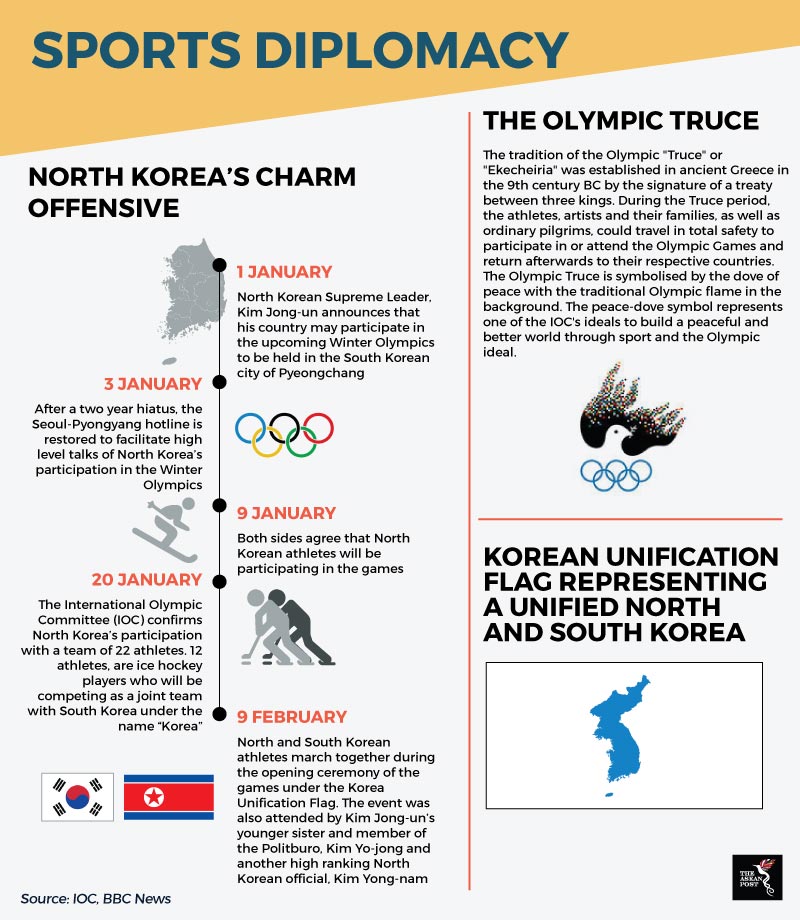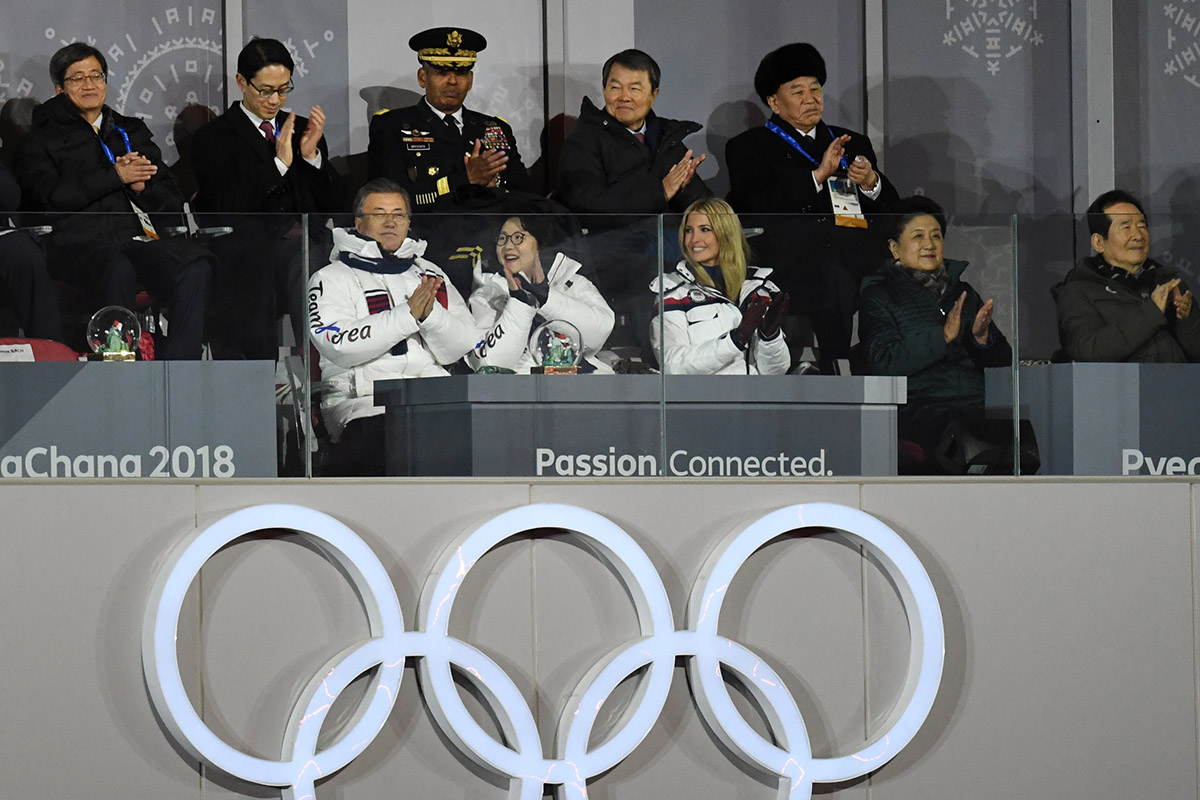The 2018 Winter Olympics in the South Korean city of Pyeongchang drew to a close yesterday with athletes from South and North Korea emerging for the closing ceremony under their own national banners. A stark contrast from the opening ceremony which saw a unified Korean entrance into the Pyeongchang Olympic Stadium – displaying the flag of a unified Korean peninsula.
From the get-go, the games were more than just about snow and sports – they were also about diplomacy.
This isn’t the first time North and South Korea have portrayed this united front in a major sporting event. In fact, the very first action of diplomacy through sports between the Koreas was conducted at the 1991 World Table Tennis Championship which saw the fielding of a Unified Korean table tennis team. North and South Korean athletes also marched together during the opening ceremonies of the Summer Olympics in Sydney (2001) and Athens (2004), as well as at the Winter Olympic games in Torino (2006).
North and South Korea, are technically still at war with one another since 1950 – a woeful remnant of the Cold War struggle between capitalist and communist forces. Under the leadership of the Kim dynasty, North Korea has had its doors closed – shielded from the outside world and branded a pariah state for its belligerent testing of nuclear weapons. Not more than 50 miles south of the demilitarised zone (DMZ) which separates North and South Korea, lies Seoul – the capital of South Korea. With a population of over 10 million, the city is nestled within striking range of a North Korean missile.
Every rendition of this brand of diplomacy has been accompanied with hope for an actual reunification or at the very least, reduction and ultimate cessation of tensions in the peninsula. This edition was no different, given the geopolitical context in which it occurred.
Tensions in the Korean Peninsula were fanned in 2017 by the testing of a nuclear bomb and several missile launches – one even soaring over the Japanese island of Hokkaido. The actions of the hermit kingdom solicited angry responses from South Korea and its key ally, the United States (US). The US retaliated by tightening its economic vice grip around Pyongyang with tougher sanctions. However, President Trump himself took it many steps further – outside the realms of regular diplomacy – by personally insulting the North Korean leader via Twitter.

The entry of North Korea into this year’s Winter Olympics was taken as a breath of fresh air, amid the mudslinging and irresponsible threats of nuclear warfare over the past few months. What came with their participation was also a high-level visit by the North Korean delegation to South Korea. Kim Jong-un’s younger sister and high-ranking member of the Politburo, Kim Yo-jong and South Korean President, Moon Jae-in met and even shook hands, in a historic gesture.
But whether this has paid off or not is dependent on what happens next. For South Korea, it has definitely opened room for discussions and talks with their northern counterparts.
South Korean President Moon Jae-in urged the United States to "lower the threshold for talks" with the North on Monday as his aides held rare talks with a Pyongyang general on ways to defuse tensions.
"I think the US needs to lower the threshold for talks and the North also needs to show determination for denuclearisation," Moon said in a meeting with Liu Yandong, a Chinese envoy to the closing ceremony.
"It's important that the US and the North sit together as soon as possible," Moon said, urging efforts by Beijing to make that happen.
The White House, however, has remained more cautious.
"We will see if Pyongyang's message today, that it is willing to hold talks, represents the first steps along the path to denuclearisation," the White House said in a statement.
"The maximum pressure campaign must continue until North Korea denuclearises," it added.
The Olympic Games may be over for now, but the diplomatic manoeuvres that accompanied it over the past few weeks will be closely monitored, for the next few months. Whether we see a real solution this time around, is anyone’s guess.
